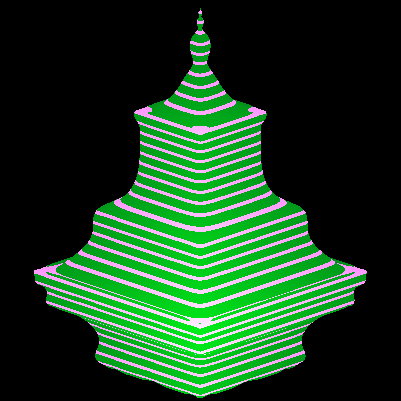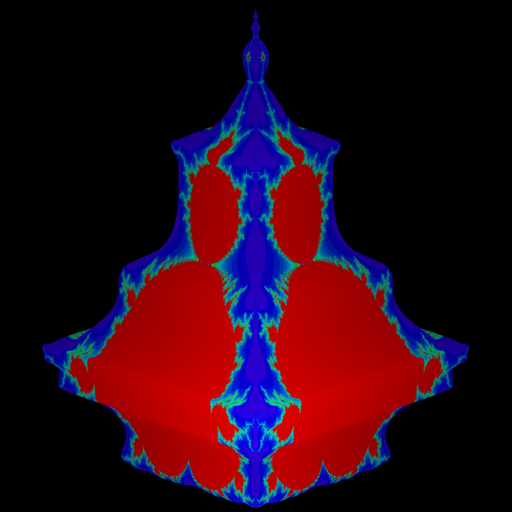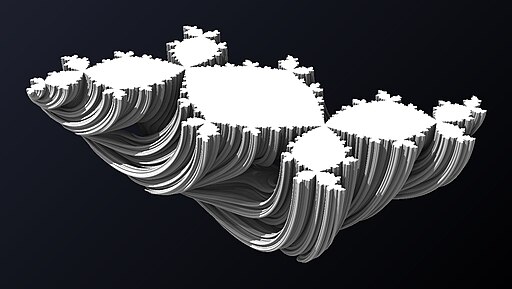In multicomplex dynamics, the Tetrabrot[1] is a 3D generalization of the Mandelbrot set. Discovered by Dominic Rochon in 2000, it can be interpreted as a 3D slice

In multicomplex dynamics, the Tetrabrot[1] is a 3D generalization of the Mandelbrot set. Discovered by Dominic Rochon in 2000, it can be interpreted as a 3D slice

There are different algorithms to generate pictures of the Tetrabrot. In the tricomplex space, the algorithms use the tricomplex function
Since it is impossible to compute infinitely many iterations in a computer, we have to consider an approximation of the condition. Therefore, we fix a finite number of iterations to test, say

The tricomplex filled-in Julia set of order
With these notations, the generalized Fatou-Julia Theorem for

In 1982, A. Norton[3] gave some algorithms for the generation and display of fractal shapes in 3D. For the first time, iteration with quaternions[4] appeared. Theoretical results have been treated for the quaternionic Mandelbrot set[5][6] (see video) defined with quadratic polynomial in the quaternions of the form

In 2005, using bicomplex numbers, É. Martineau and D. Rochon[7] obtained estimates for the lower and upper bounds of the distance from a point
Using the Green function

There exists also a generalization of the lower bound for